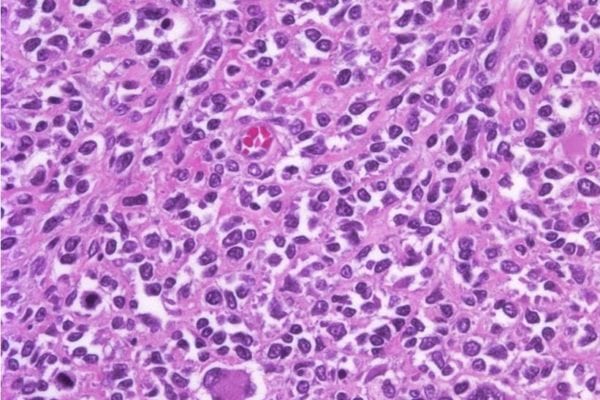Role of ZFP57 in regulating Imprinted Genre Expression in Human Rhabdomyosarcoma.
Tuesday, May 29th, 2018

Rhabdomyosarcoma (RMS) is the most common soft tissue sarcoma in children and young adults. Current therapy has long-term side effects and achieves cure in less than 40% of metastatic patients, a feature that has not changed over the past 40 years. The two main subtypes of RMS, Embryonal (ERMS: 70% of cases and more prevalent in <10 yo), and Alveolar (ARMS: less prevalent and with poorer prognosis), have abnormally increased expression of a subset of paternally imprinted genes. Amongst those, IGF2 (Insulin-like Growth Factor-2, that promotes IGF pathway), DLK1 (Delta-Like 1 homolog, that promotes NOTCH pathway) and RasGRF1 (Ras Protein-Specific Guanine Nucleotide-Releasing Factor 1, that promotes RAS pathway) have proven to participate in development, growth and metastasis of RMS.
Imprinting is a mechanism of gene regulation in which a selected group of genes are exclusively expressed from either copy inherited from the mother or from the father, and is crucial for normal embryonic growth and development. Imprinted genes are usually organized in clusters. An Imprinting Control Region (ICR) located within the cluster controls the expression or silencing of these genes. ZFP57 (Zinc Finger Protein-57) specifically binds ICRs in embryonic cells maintaining imprinted gene expression during embryonic development. ZFP57 expression decreases as cells differentiate and is normally absent in tissues after birth.
In our lab, we developed a mouse model of rhabdomyosarcoma and imprinted gene expression is increased, as it is in human ERMS. More over, we detected, for the first time, expression of ZFP57 not only in murine ERMS, but also most importantly in human cell lines (4) and primary tumors (20) of from both types of rhabdomyosarcoma. We will test in our proposal that expression of imprinted genes in RMS relies on ZFP57. We are currently using genomic editing tools and gainof-function approaches to increase or decrease ZFP57 in RMS cells. If we prove ZFP57 is responsible for imprinted gene expression, blocking its function would tackle simultaneously multiple relevant pathways in RMS. Since ZFP57 expression is normally limited to embryonic stages and it specifically regulates imprinted gene expression, blocking this mechanism should not harm normal mature cells, leading to improved outcome with less toxicity.
Principal Investigator:
Estibaliz Lopez Rodrigo MD
Clinical Fellow
Joyner Lab – Department of Developmental Biology
Sloan Kettering Institute
Rm. 721, Rockefeller Research Labs
430 E. 67th St, NYC NY 10065
212-639-3980

